Os EUA de Trump configuram o primeiro caso de um império quase universal que renuncia deliberadamente à liderança em seus próprios termos – que no caso da América tradicional deveriam ser os de uma ordem liberal democrática fundada sobre a liberdade de mercados – e adere a uma visão do mundo introvertida, introspectiva, de abandono de suas obrigações com os satélites.
Curioso caso de suicídio imperial...
Paulo Roberto de Almeida
Brasília, 7 de julho de 2018
Can the Trump-Putin Summit Restore Guardrails to the U.S.-Russian Relationship?
President Donald Trump’s habit of challenging the Washington establishment and upending decades of U.S. foreign policy conventions is by now well documented. Equally well documented is his desire to change the course of U.S.-Russian relations. Therefore, his meeting with President Vladimir Putin in Helsinki on July 16 should not come as a surprise to anyone. Trump’s many pronouncements on Russia and Putin over the years leave no doubt that he is eager to turn the page on any number of hot-button issues, including Putin’s annexation of Crimea, the wars in eastern Ukraine and Syria, the multiple rounds of sanctions, and Russian meddling in the 2016 U.S. presidential elections.
Moreover,
Trump’s desire “to get along” with Russia is hardly unprecedented. Since the end of the Cold War, every U.S. and Russian president has similarly attempted to develop a cooperative bilateral and personal relationship. Each attempt has ended in bitter disappointment, leaving U.S.-Russian relations in even worse shape. The relationship has been through a series of booms invariably followed by busts, highlighting very real differences between them that no amount of presidential bonhomie can overcome.
What is needed today is not another symbolic handshake or commitment to move past the old differences, but rather a sober look at the root causes of successive crises in U.S.-Russian relations as well as a clearer understanding of why major disagreements have lingered despite both sides’ attempts at reconciliation.
Putting those disagreements aside is not the same as resolving them. The underlying causes of past crises have been ignored. If the relationship between Moscow and Washington is to move beyond the boom-bust cycle, the key question is whether these differences and their causes can be addressed. Observers are skeptical that the meeting in Helsinki can accomplish that but hope that the two presidents can launch a much-needed yet long-delayed dialogue about the true state of the U.S.-Russian relationship. That alone could be a major accomplishment of the first full-fledged Trump-Putin summit.
A Clash of Visions
At the heart of the long-standing conflict between Russia and the United States is a disagreement about their respective approaches to the conduct of foreign affairs. Until Trump arrived on the scene, the United States traditionally championed (even though admittedly it has not always adhered to it) the international liberal order—including political liberalism, economic liberalism, and liberalism in international relations—and actively promoted liberal values beyond its borders. Russia has adhered to a very different—realist—philosophy and stressed the importance of national interests rather than liberal values in the conduct of its foreign policy. As much as the United States has sought to promote the international liberal order, Russia has resisted its expansion, especially in areas that could touch on Russian interests.
This fundamental disagreement has hardly been addressed, let alone resolved in the course of the entire post–Cold War history of the bilateral relationship. (While there are abundant signs that Trump sees the international liberal order as fundamentally harmful to the political and economic vitality of the United States, he is learning that its continued existence is hard to wish away or dismantle overnight.)
The U.S. national security establishment—buoyed by a perceived victory in the Cold War and the failure of the Soviet Union and its discredited ideology—took largely a laissez-faire approach to this problem, firmly believing that Washington was on the right side of history. The establishment believed that any opponents would sooner or later realize the errors of their ways and embrace its worldview. And if they did not, they would eventually pay the price for resisting the forces of history.
Their Russian counterparts rejected the proposition that they had lost the Cold War and refused to accept the consequences of the West’s victory. Moscow’s vision has been deeply affected by its experience at the end of the Cold War and guided by a firm resolve to prevent it from being repeated. Since the mid-1990s, resistance to the U.S.-led liberal order has been the centerpiece of Russia’s foreign policy. With neither side willing or able to compromise and each convinced that it has chosen the only viable path, their fundamental disagreement has put a powerful brake on successive attempts to repair the relationship and set it on a sustained, mutually beneficial track.
Cycles of Frustration
And such attempts by U.S. presidential administrations have been made repeatedly. Bill Clinton’s administration’s partnership for reform with Russia was intended to help Russia transform itself into a market economy and democratic society, which was expected, in turn, to make it a willing member of the international liberal order. The offer of partnership with NATO was intended to assuage Russian concerns about NATO as a threatening military alliance, as it expanded into Central Europe. These pursuits were premised on the expectation that Russia would change and follow the U.S. lead.
George W. Bush’s administration had hoped to transform the relationship in the wake of 9/11 and redefine the strategic nuclear relationship with Russia by moving away from the concept of mutually assured destruction (MAD) and the legacy of what it believed were obsolete, binding arms control agreements inherited from the Cold War. As a practical matter, the United States withdrew from the 1972 Anti-Ballistic Missile (ABM) Treaty, which the Russians regarded as a cornerstone of strategic stability. The underlying logic of this approach was that if the two countries were no longer in an adversarial relationship and no longer threatened each other, they could dispense with that legacy. Beyond the nuclear realm, the Bush administration engaged in democracy promotion as a means of spreading stability and prosperity. Russia rejected both the idea of moving past MAD and the historical inevitability of democratic change as profoundly threatening to its interests.
Barack
Obama’s administration’s attempt to “reset” the relationship with Russia in the aftermath of the 2008 Russian-Georgian war also paid little heed to the underlying causes of the conflict between Russia and the United States. With “modernization” as its principal theme, this policy, just as its predecessors, was premised on the idea of encouraging domestic change in Russia that would ultimately lead to changes in its foreign policy and acceptance of the U.S.-led international liberal order. None of this happened.
U.S. policymakers were not the only ones frustrated. Their Russian counterparts too had many frustrations and complaints about U.S. handling of the bilateral relationship, which they have voiced repeatedly over the past three decades. The Russian narrative includes broken U.S. promises not to expand NATO, interference in Russian domestic politics and use of double standards when criticizing it for its democracy deficit, refusal to treat Russia as a peer, reliance on economic sanctions to achieve desired political and diplomatic outcomes, withdrawal from the ABM Treaty, unilateral use of military force, and regime change and destabilization under the guise of democracy promotion in countries within Russia’s self-proclaimed sphere of interests or that are simply friendly to it.
Different Approaches, Same Result
Aside from unrealistic expectations, the successive attempts to improve U.S.-Russian relations often had a significant structural flaw, reflecting important differences between U.S. and Russian policymaking. The U.S. approach to the relationship typically favors small steps and modest initiatives that bubble up from within the national security establishment and seek to promote understandings on a relatively narrow set of issues. If progress is achieved, it can serve as a springboard for expanding the conversation and hopefully achieving further progress on a broader agenda. Eventually, the series of incremental successes will build up to a broad, U.S.-driven strategic agenda and rise to the level of a presidential deliverable.
The Russian approach to the relationship is exactly the opposite. It begins with a broad understanding about the quality of the relationship at the highest level, which provides strategic guidance for lower-level policymakers to reach agreements on individual components of the jointly designed overall agenda. It is an approach that favors grand bargains among equals and unvarnished realpolitik rather than small steps.
Regardless of whose approach is more likely to result in an improved relationship, it is dubious that
the Kremlin or
the White House is actually in a position to test it at the moment. Instead, both appear poised to sustain the tensions, each blaming the other side for the current state of affairs. The political atmosphere in both capitals is such that any proposal for a compromise with the other side is certain to trigger charges of surrender and betrayal of national interest. A corrosive lack of trust is omnipresent.
In Russia, the United States is widely portrayed as a country governed by a “deep state,” an entrenched elite guided by profound antipathy toward Russia and intent on marginalizing Russia on the world stage, destabilizing its domestic politics, and undermining its economy. This entrenched elite is so powerful, according to this narrative, that it can thwart presidential initiatives aimed at improving relations with Russia. Under these circumstances and congressional moves to tie Trump’s hands, the Kremlin appears to have written off the United States as a potential partner for the foreseeable future. Consequently, there is very little chance for another reset, and the current state of affairs between Moscow and Washington is here to stay.
In the United States, Russia has emerged as both the “geopolitical enemy number one” and, in a manner somewhat reminiscent of the Red Scare of the 1940s and 1950s, not just a source of external threats to U.S. national security and interests abroad but also a threat to its domestic political order. The list of U.S. concerns includes, but is not limited to, Russian interference in the 2016 presidential election, the use of social media by Russian state-sponsored actors to sow internal U.S. political divisions, Russian cyber intrusions aimed at disrupting U.S. critical infrastructure and networks, the annexation of Crimea and the war in eastern Ukraine, support for President Bashar al-Assad’s regime in Syria, suppression of civil liberties in Russia, and, more broadly, Russian efforts to undermine the U.S.-championed international liberal order. Taken together, these concerns amount to a powerful indictment and, quite understandably, help cement doubts in many quarters about the wisdom of seeking better relations with Russia.
Emphasis on Managing
Nevertheless, further tensions between Russia and the United States are fraught with dangers that neither side would welcome. As demonstrated by the choreography involved in U.S. and Russian activities in Syria, neither side is
seeking an outright military confrontation. Should such a confrontation occur, it would be as a consequence of a miscalculation or an accident. Both sides’ interests would be better served by mutual efforts focused on managing an inherently competitive, and oftentimes adversarial, relationship rather than engaging in brinkmanship.
Such efforts could build on some modest accomplishments that have already proved effective in tense and potentially dangerous situations. For example, military-to-military contacts at the highest level—between Russia’s Chief of the General Staff General Valery Gerasimov and his U.S. counterpart, Chairman of the Joint Chiefs of Staff General Joseph Dunford—have created an effective channel for communication and for lower-level efforts to deconflict the two militaries’ activities in Syria. (A deadly incident in Deir Ezzor on February 7, 2018, involving
Russian private military contractors was a crucial exception to the rule.) A similar effort is urgently needed to manage U.S. and Russian military activities in the airspace and at sea in the Baltic and Black Sea regions. With neither side willing to cease its military activities in either region yet evidently not interested in an outright collision, both sides should, in theory, have incentives to avoid an accident there.
The issue is not that Russian daredevils are performing acts of hooliganism in the air or that NATO pilots in international airspace are unaware that they are coming too close to Russian borders or assets. Each side seeks to make a point to the other, and neither is willing to step back, thus continuing the dangerous game. The only way out of this situation lies in a mutual understanding to stop testing each other’s nerves and aerobatic skills and instead to observe a protocol under which neither party provokes the other. This could be a first, relatively easy step toward military de-escalation.
Beyond the immediate danger of an unintended military confrontation on Europe’s southern and northern flanks, one other issue requiring immediate attention is arms control. Mutual accusations of violations of the
Intermediate-Range Nuclear Forces (INF) Treaty and the approaching expiration of the
New START Treaty in 2021 underscore the precarious state of the entire bilateral arms control structure the United States and Russia have inherited from the Cold War era. Even though it is increasingly
inadequate to constrain the reemerging arms race between the two nuclear superpowers, and leaves out other nuclear powers, including China, that structure could provide an indispensable foundation for future efforts to manage and contain their arms race, as well as possibly involve other nuclear powers in these efforts. The collapse of that structure would cause irreparable harm to future bilateral and multilateral arms control and U.S.-Russia strategic stability. It would not serve the interests of either side.
Although the political climate in both capitals is not propitious for seeking compromises, there is no plausible argument for not engaging in dialogue about the INF Treaty, each side’s charges of the other’s violations, the future of arms control, and strategic stability. It would be unrealistic to expect such a dialogue to produce a resolution of the dispute about the INF Treaty. However, if conducted in good faith, it could clarify each side’s position and concerns and, potentially, lead to the development of a conceptual framework for resolving the dispute. It is difficult to see the risk entailed in such a dialogue, while it could produce substantial benefits. U.S. and Russian official delegations met in September 2017 for strategic stability talks. Another meeting was scheduled for April 2018 but postponed without a new date. This dialogue should be resumed. The potential agenda should comprise new issues, including the risk that new cyber capabilities pose to strategic command and control and long-standing Russian concerns about U.S. missile defense deployments and conventional strategic systems.
Moreover, official dialogue should be supplemented by Track II or Track 1.5 engagement between U.S. and Russian experts. In the past, such contacts were useful for testing concepts and exploring new ideas in an unofficial setting, which subsequently fed into official exchanges. In the current atmosphere of tensions reminiscent of the Cold War, unofficial contacts could once again prove useful, assuming that they actually have buy-in from officials on both sides.
While useful and urgently needed, none of the measures sketched out in the preceding paragraphs is likely to repair the relationship or amount to more than minimal steps necessary for managing it and preventing it from deteriorating further and causing irreparable damage to its key components. Moreover, while necessary, they may not be sufficient to avert further setbacks in the relationship.
The real work to repair U.S.-Russian relations will have to be done at the political level. It will have to begin with lowering the heat of political rhetoric in both Washington and Moscow and conducting a high-level dialogue about the nature of major disagreements and mutual grievances and about their goals, expectations, and desired rules of the road for the relationship. Such a dialogue could can be advanced by more informal discussions between senior U.S. and Russian figures who are less constrained by official roles.
In preparation for political dialogue, each side could take some significant steps to signal the seriousness of its intent and lack of interest in further escalation of tensions. Such steps would not have to be symmetrical but could instead be aimed at addressing some of the other side’s more significant concerns. Conceivably, both sides could take proactive steps to signal their interest in deescalating tensions and halting the destructive cycle.
For example, the military stand-off between Russia and the West is becoming a permanent feature of increased tensions between the two sides. This is a direct result of Russia’s ongoing military modernization efforts and troop deployments and NATO’s efforts to reestablish the credibility of Article 5 commitments for frontline member countries in the wake of the Ukraine crisis. It is unlikely that either side will have an incentive to scale back or defer deployments or training activities along the NATO-Russia frontier any time soon. Still, it is possible that Trump will make a grand gesture akin to his spontaneous decision at the June 2018 summit meeting with North Korean leader Kim Jong-un to suspend major military exercises with South Korea.
It’s also conceivable that the Kremlin could begin to exercise greater restraint in deliberate harassment of U.S. ships and aircraft operating in international waters and airspace in the Baltic and Black Sea regions. Such a move by the Kremlin would be cost-free and entail no permanent changes to its operations in either region but would send an important signal to Washington about the Russian leadership’s desire for deescalation or at least not escalation. For its part, NATO could underscore that the 1997 NATO-Russia Founding Act’s “three no’s” commitment—which pledged that no nuclear or substantial combat forces would be deployed on the territory of new member states as long as
NATO and Russia “build together a lasting and inclusive peace in the Euro-Atlantic area on the principles of democracy and cooperative security”—is still in effect and that the alliance’s post-2014 forward deployments constitute a response to Russian actions.
Sanctions, which have become the central tool of U.S. policy toward Russia, represent an even more complicated challenge. For the Kremlin, the U.S. sanctions constitute both a challenge and an opportunity. They restrict Western investment and technology transfer, but they also have a rallying-around-the-flag effect that consolidates Russian elites. Furthermore, they prompt Moscow to look for partners beyond the West and redefine Russia’s position as a non-Western global player operating from its base in northern and central Eurasia.
On the one hand, the sanctions program has provided an effective tool for curtailing business as usual, punishing Russia for various actions, and, some would claim, probably deterring future disruptive behavior (at least, on the margins). On the other hand, Western sanctions are not, in and of themselves, a substitute for an effective policy unless they are paired with a coherent diplomatic strategy. For example, the Iran nuclear deal, now abandoned by the Trump administration but otherwise viewed widely as a diplomatic success, was achieved with the help of a dual-track approach that combined increasingly severe sanctions with sustained negotiations. The diplomatic track included a multilateral road map with sanctions relief and other incentives. Such concepts are conspicuously missing from current U.S. policy toward Russia. Policymakers must begin to articulate practical policy outcomes that inform the future use of sanctions.
Prospects
The current state of affairs between Russia and the United States is somewhat of a paradox. There is a deep reluctance in both capitals to admit that they are once again in a Cold War. Yet there is broad consensus that the differences between them are real and profound. Voices in both capitals point out the dangers associated with the current state of affairs, the lack of reliable political channels of communications, and the risk of unintended escalation. These sensible voices are realistic about the likelihood of the relationship being repaired overnight as a result of a brief meeting between the two presidents.
The experience of the Trump-Kim meeting in Singapore suggests that such a brief encounter cannot resolve the differences that have accumulated in the course of decades. But the experience of the Singapore summit also suggests that such encounters can create a positive atmosphere for the real hard work of repairing relations to begin. The Trump-Putin summit potentially can accomplish the same, very important results. It can empower the reasonable voices to begin the conversation in earnest about the state of the relationship, about ways to repair it, and, at the very least, a mutually acceptable way for managing it. If that is the outcome of the Trump-Putin summit, it should rightly be called a success.



 Less than a decade ago, it seemed self-evident that Russia, despite all of its cultural and political differences, was reclaiming its rightful place as part of the Western world. In a piece for a German newspaper, Vladimir Putin wrote of a “Europe from Lisbon to Vladivostok” that aspires to free trade and shares common values, notes analyst Yaroslav Trofimov.
Less than a decade ago, it seemed self-evident that Russia, despite all of its cultural and political differences, was reclaiming its rightful place as part of the Western world. In a piece for a German newspaper, Vladimir Putin wrote of a “Europe from Lisbon to Vladivostok” that aspires to free trade and shares common values, notes analyst Yaroslav Trofimov.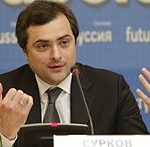


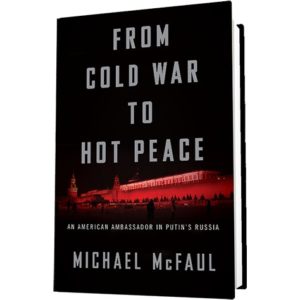 Placing responsibility for the rapid deterioration in U.S.-Russian relations squarely on the shoulders of the Russian president has its appeal, notes Daniel Beer, a reader in Russian history at Royal Holloway, University of London.” It holds out the promise that Kremlin policy toward the West might pivot once again when Putin finally retires or is pushed out, he writes in a NY Times review of Michael McFaul’s From Cold War to Hot Peace: An American Ambassador in Putin’s Russia:
Placing responsibility for the rapid deterioration in U.S.-Russian relations squarely on the shoulders of the Russian president has its appeal, notes Daniel Beer, a reader in Russian history at Royal Holloway, University of London.” It holds out the promise that Kremlin policy toward the West might pivot once again when Putin finally retires or is pushed out, he writes in a NY Times review of Michael McFaul’s From Cold War to Hot Peace: An American Ambassador in Putin’s Russia: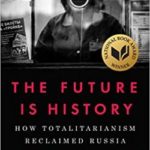 Like many of its predecessors, the Bush administration engaged in democracy promotion as a means of spreading stability and prosperity. But Russia rejected both the idea of moving past MAD and the historical inevitability of democratic change as profoundly threatening to its interests, according to Carnegie analysts Eugene Rumer, Dmitri Trenin and Andrew S. Weiss.
Like many of its predecessors, the Bush administration engaged in democracy promotion as a means of spreading stability and prosperity. But Russia rejected both the idea of moving past MAD and the historical inevitability of democratic change as profoundly threatening to its interests, according to Carnegie analysts Eugene Rumer, Dmitri Trenin and Andrew S. Weiss. Russia’s leader may be capable of change, says Mikhail Khodorkovsky, 55, Putin’s most prominent opponent in exile, who has sought to promote democracy Russia through the Open Russia movement.
Russia’s leader may be capable of change, says Mikhail Khodorkovsky, 55, Putin’s most prominent opponent in exile, who has sought to promote democracy Russia through the Open Russia movement. But the Kremlin’s reaction to Ukraine’s Euromaidan revolution suggests otherwise, he concedes.
But the Kremlin’s reaction to Ukraine’s Euromaidan revolution suggests otherwise, he concedes.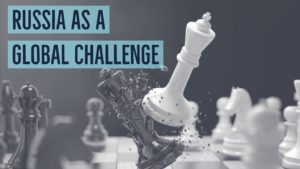 A divided EU – with an unstable Germany, a UK on its way out and renegade central eastern member states – indicates the dead end of the normative approach to foreign relations, according to analyst Vessela Tcherneva. Europe appears to be only of interest to the US as an ally in the competition with Russia and China, she writes for the European Council on Foreign Relations.
A divided EU – with an unstable Germany, a UK on its way out and renegade central eastern member states – indicates the dead end of the normative approach to foreign relations, according to analyst Vessela Tcherneva. Europe appears to be only of interest to the US as an ally in the competition with Russia and China, she writes for the European Council on Foreign Relations.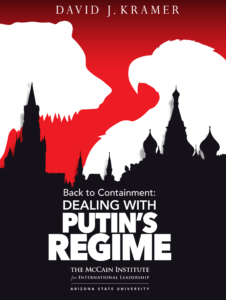 As the highly anticipated Putin-Trump summit nears, pundits are discussing the main challenges of the meeting and potential outcomes for the U.S-Russia relationship, the Institute of Modern Russia reports:
As the highly anticipated Putin-Trump summit nears, pundits are discussing the main challenges of the meeting and potential outcomes for the U.S-Russia relationship, the Institute of Modern Russia reports: